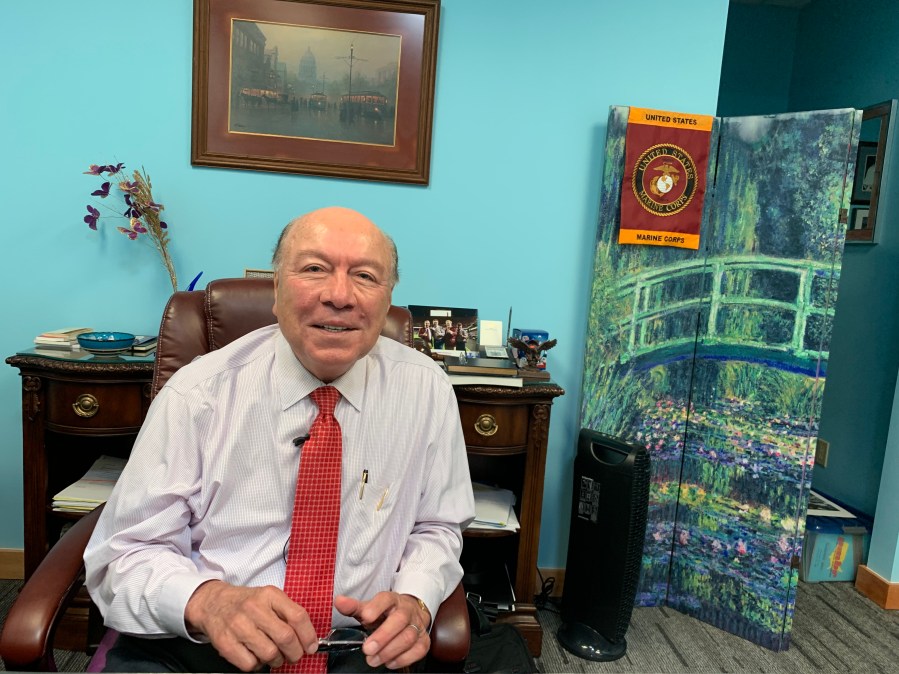EDINBURG, Texas (Border Report) — Although efforts by the Trump Administration to insert a citizenship question in the 2020 Census have so far failed, the mere mention of such a question has stoked widespread fear among many immigrant communities in South Texas, prompting worry by local officials that many residents will not fill out the necessary forms.
If they don’t, the state of Texas could lose millions of dollars in federal funding for health care, education and transportation, which are portioned based on population size. The state also could miss out on extra representation in Congress.
Texas is expected to gain three more congressional seats because of the swell of its population since the last Census in 2010, which includes the addition of many immigrants. That would give Texas 39 congressional districts. But if people ignore the Census, then the state might not gain any extra seats and it could even lose some.
“It’s a real concern,” said State Sen. Juan “Chuy” Hinojosa, a Democrat who represents District 20, which includes McAllen and Corpus Christi. “Many of them would refuse to fill out a Census application because they will be afraid if the question is asked if they are a U.S. citizen. They will be afraid of being deported and singled out, especially with the environment that we have today coming from Washington, D.C., which is quite frankly quite hostile to immigrants.”
Census count is April 1
The nationwide Census count will be held on April 1. The Constitution requires a Census count every 10 years — of every person residing in the country, regardless if they are a citizen or not.
But many immigrant advocates say the upcoming count has been turned into a political fight against immigrants because of the attempts by the Trump Administration to interject the controversial citizenship question. Whether the question is actually asked in the Census, or not, they say the damage has already been done because immigrants are very afraid to take part in the Census, fearing retribution by federal immigration officials.
Under federal law, specific survey information gathered during a Census, such as a person’s identity, may not be shared by the Census Bureau with other federal agencies. Nevertheless, that has not seemed to assuage fears within immigrant communities that they will not be sought out.
“The Constitution says we count every person, not citizen,” Hinojosa explained from his office in Edinburg, Texas. “It makes a difference. It will impact our representation in Congress and the allocation of funding because funding nationwide is distributed based on population.”
It makes a difference. It will impact our representation in Congress and the allocation of funding because funding nationwide is distributed based on population.”
State Sen. Juan “Chuy” Hinojosa (D-Corpus Christi-McAllen)
Texas redistricting
Last month, Texas Lt. Gov. Dan Patrick, a Republican, appointed Hinojosa to be vice chairman of the Texas Senate Committee on Redistricting. That committee will draw state legislative and congressional districts for the 87th Texas Legislature based on population figures derived from the 2020 Census.
Currently, the 150 members of the Texas House of Representatives each represent about 167,000 people. The state’s 31 senators each represent about 850,000 people, and that could increase up to 1 million after the Census, Hinojosa said. His committee also would be charged with redrawing the all-important congressional districts.
But given the partisan politics in Washington, D.C., and a recent ruling by the U.S. Supreme Court — that failed to shut down federal partisan-gerrymandering claims, except when the rights of minority voters are deluded — Hinojosa and his colleagues are expecting a tough task ahead as they try to redraw state districts.
“Redistricting is necessary to ensure that districts are properly apportioned and Texans have equal representation,” he said. “It’s a challenge and quite frankly I do not agree with the opinion by the U.S. Supreme Court, but it’s the law of the land so we have to abide by it. It really gives a blank check to the party in power, whether Republican or Democrat, to gerrymander and select the borders they want, not the other way around — the voters electing who they want as a representative.”

Galvanizing the count
In anticipation of low Census participation, community leaders in South Texas have been galvanizing by forming task forces and “Complete Count Committees” to educate residents about the importance of taking part in the count.
The City of McAllen in March 2018 appointed a 16-member McAllen Complete Count Committee that focuses on schools, local businesses, and immigrant and media outreach. The committee is chaired by McAllen Police Chief Victor Rodriguez, who told Border Report, “We’re beginning to engage people and talk to people and letting them know how important the Census is.”
Rodriguez served on the city’s 2010 Complete County Committee, which formed much later leading up to that Census. But after the Trump Administration in 2018 said it was putting a citizenship question on the Census, this group was quickly formed, along with several others in the region.

The Lower Rio Grande Development Council has taken a lead helping to organize various local entities to work with locals. The council reports that Complete Count Committees also have been formed in the cities of: Alamo, Brownsville, Edinburg, Harlingen, Mission-Palmview, Pharr and Weslaco. In addition, Cameron, Hidalgo and Willacy counties have all formed committees along with the Regional Small cities Coalition, and RGV Border Health Coalition.
“We’re doing a little bit better than last time in that we have effective Valley-wide engagement,” Rodriguez said. “We’ve all got different activities independently and collectively to enhance the count.”
Hidalgo County, which is home to McAllen and many of the cities listed above, could score 1 million residents in the 2020 count, if everyone fills out the form.
“That means for us in Texas we’ll gain more power and more representation in Congress,” Hinojosa said.
Hinojosa, who is a lawyer, added that regardless of the final count he expects lawsuits and litigation to contest redistricting lines in Texas. “As long as I can remember — after the final vote is taken and the governor signs the district maps — lawsuits are filed by either side. Some of the lawsuits are still pending as of today from redistricting we did 10 years ago.”

















